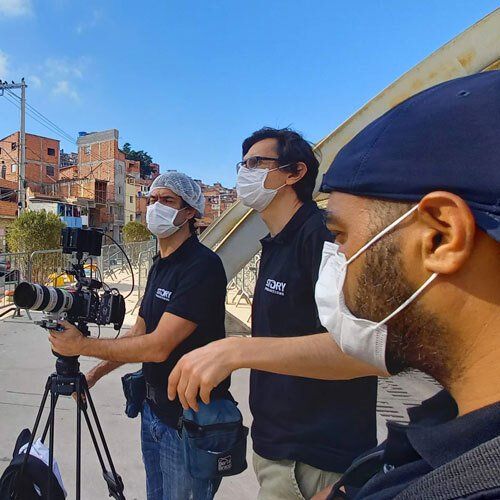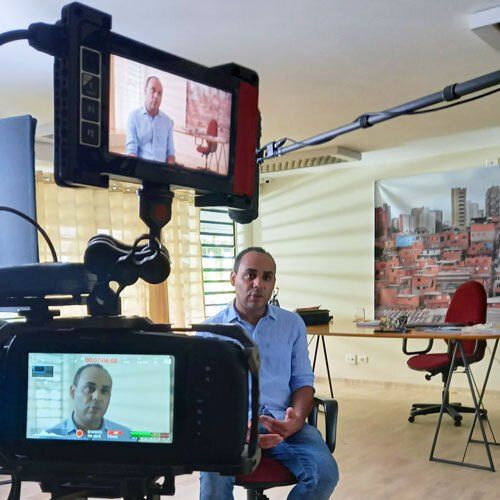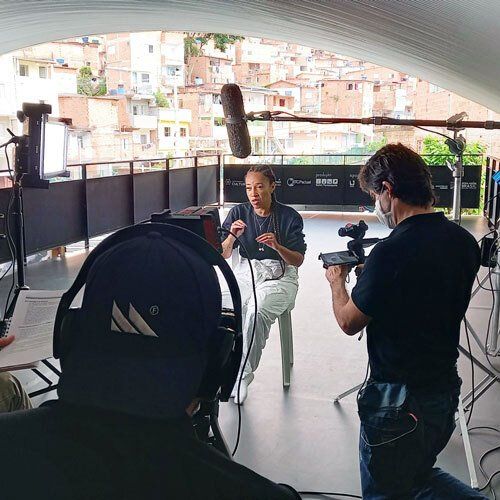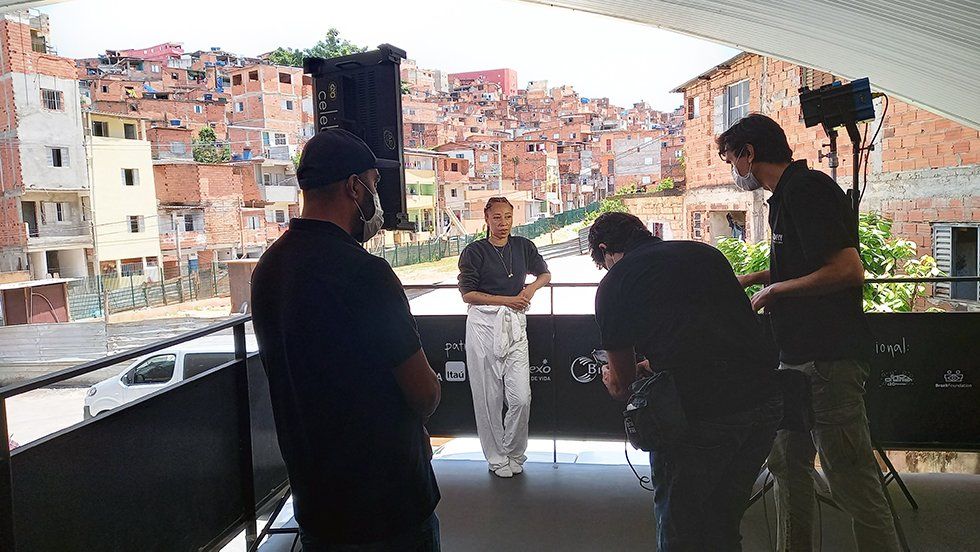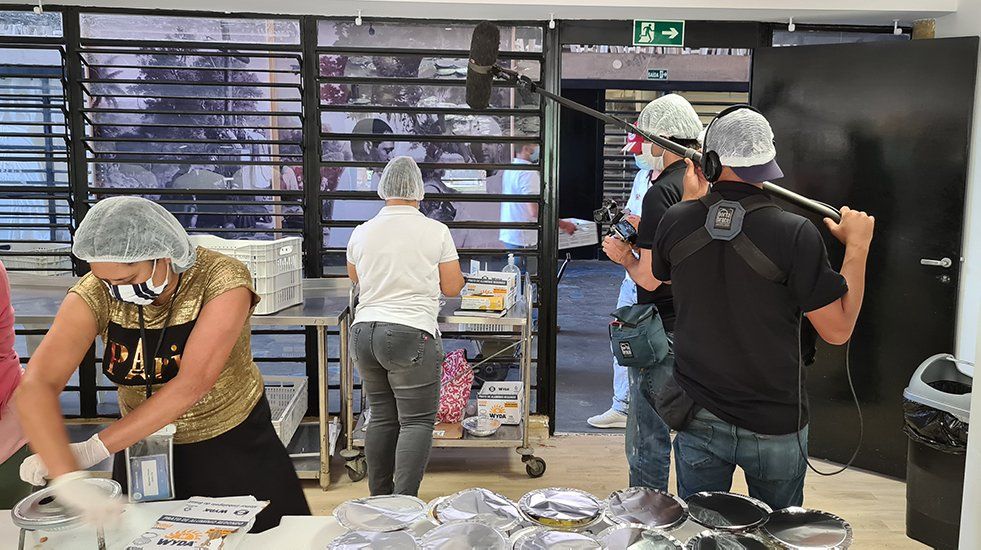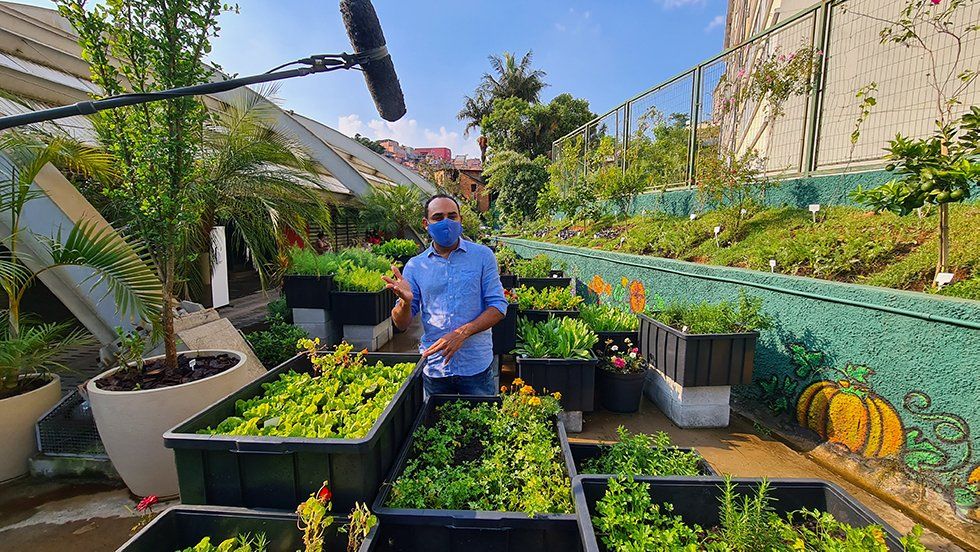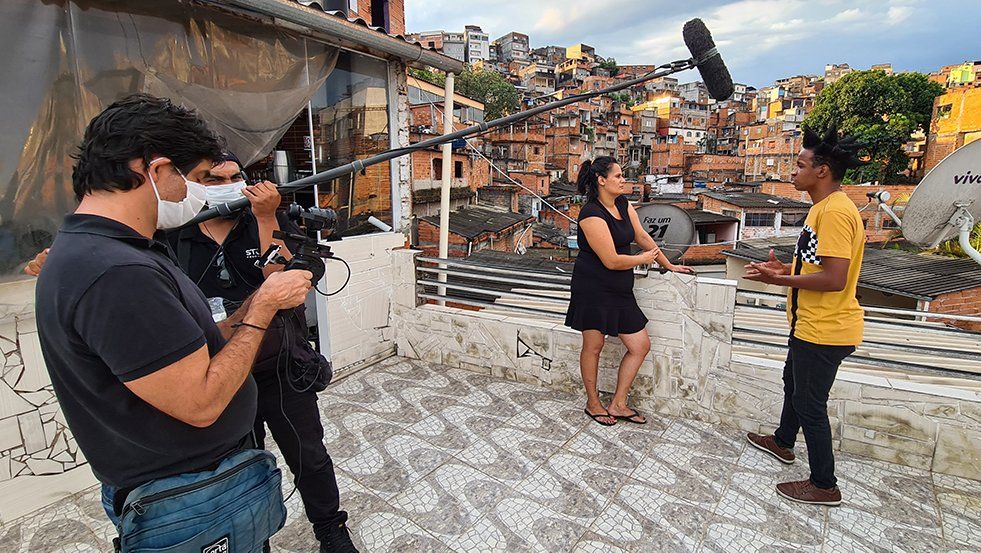CASE STUDY
Remote directing:
Post Corona documentary
South Korean public service broadcaster EBS hired a Brazilian film crew from Story Productions to shoot scenes in São Paulo favelas as part of a 6-part documentary about the changes we're likely to see around the world following the Covid-19 pandemic. Unable to send their own crew to film, they hired local production companies and remotely directed the shoots using live streaming technology.
Date:
2021
The EBS documentary series
Post Corona
was an ambitious production, with six episodes of nearly an hour each in length. Each episode honed in on a different aspect of the pandemic, and episode five explored how the pandemic has unequally impacted people across the world depending on race and wealth. This was where São Paulo featured, opening the episode with the struggles of a single mother living in Brasilândia, one of the city’s largest favelas (slums). “I’m more afraid of starving than getting coronavirus,” she told the Story producer in an emotional and very personal interview that was accompanied by footage of her daily life, scraping together a living and caring for her young children.
The episode (watch below) then jumps to the USA and an African American doctor who faced discrimination in hospital after contracting the virus, and then on to South Korea and the delivery drivers who have been systemically underpaid and forced to work overtime during the pandemic. São Paulo then brings to episode to a close with stories from another favela – Paraisópolis – of community resilience in the absence of state support, of meal distribution programmes and a community-run ambulance scheme, among other initiatives.
THE CHALLENGES
Brazil was often in the international news in 2020, be it for soaring Covid-19 case numbers, yet another health minister being fired, or – at its worst – the near collapse of its health system. It was in that context that EBS contacted Story Productions in 2020, wanting to film in São Paulo’s favelas where social distancing and regular hand washing is nearly impossible, and many residents had lost their income and were struggling to put food on the table.
Story Productions has been keeping a close eye on the evolving pandemic in Brazil and its impact on audiovisual production since March 2020, publishing regular updates on our dedicated Filming in Brazil during Covid-19 page. Filming scenes in São Paulo for this documentary involved a number of challenges, from finding the right characters to film, to arranging access and permissions to film in favelas, guaranteeing the safety of both our crew and subjects, and enabling the director in Korea to follow the shoot in real time.
Cast research
Finding the right subjects to film was an essential starting point for portraying the social and economic hardships being faced by the millions of people that live in São Paulo’s favelas. We have filmed a number of times before in favelas, both in Rio de Janeiro and São Paulo, and through our network of contacts and social media channels we came up with a long list of possible subjects who fitted the bill both in terms of profile but who also had captivating and emotional stories to tell.
We spoke to all of them on the phone in order to present a more detailed profile and back story to the series director who then made the decision about who to feature. The three protagonists were a single mother, a community leader and an ambulance co-ordinator.
Filming in favelas
São Paulo has nearly 2,000 favelas – communities populated by low-income families, built without any planning or access to infrastructure, often in precarious locations and with irregular water and energy supplies. The conditions and characteristics of each favela can vary hugely; some are in the centre of the city, tightly packed into small areas of wasteland while others are vast warrens of narrow lanes on the city’s outskirts. We filmed in two of São Paulo’s largest favelas – Brasilândia and Paraisópolis.
The first step to setting up the shoot was to hire a local producer from the community or a well-respected member of the community. This not only serves as an invitation for an outside crew to enter the favela safely, but also opens doors to people and places, providing essential on-the-ground local knowledge.
In the last decade or two,
a creative audiovisual scene has started to flourish in São Paulo’s favelas with production companies opening up within the favela. We tapped into this local talent in Brasilândia, hiring a producer from the favela, and in Paraisópolis we worked with a community leader to establish access and contacts and obtain all the permissions to film. They also negotiated with the local drug gangs to get authorization for our Brazilian crew to send a drone up, showing them the footage afterwards and explaining what the shoot was about.
Pre-production planning versus seizing the moment
Working to a detailed shooting script is practical only up to a certain point in favelas, where life is lived in a pretty spontaneous way, especially so during the unpredictable unfolding of the coronavirus crisis. We discussed in detail with the EBS episode director ahead of the shoot to understand her vision, and make sure that was reflected in the guideline shooting script.
Capturing things as they happen naturally is the ideal approach with documentaries but it’s an approach that relies to a degree on luck. What we were able to plan carefully in advance, however, was all the possibilities for scenes and shots, what was due to happen and when, and how we would tackle each shot, for example if the community ambulance was called out (which it was). Getting great footage is as much about getting those lucky moments as having a talented DOP who can spot opportunities to film, made all the easier by establishing a good rapport with the documentary subjects.
Even with careful pre-production planning, hurdles still crop up when filming in Brazil. The single mother featured in the documentary decided on the day of the shoot to take one of her children to a public health clinic in the favela to be vaccinated. We would need formal authorization from City Hall to accompany her inside the clinic, but with a few persistent phone calls and emails from our production team we had permission sorted within just a couple of hours.
Staying safe at the peak of the pandemic
Keeping our crew in Brazil safe, and guaranteeing the safety of the people they're filming has been a top priority for all of the Brazil production services we have provided throughout the pandemic. Story Productions is compliant with all Brazilian audiovisual sector safety protocols. We’re using personal protective equipment (PPE), including 3M 8801 and three-ply surgical masks. A reduced recording team and attention to social distancing has become the norm for all of our shoots.
Our core team of multilingual producers in Brazil have the Safe Sets™️ Covid-19 course certification, one of the first courses focused on the safety of film crews.
Production notes
- We filmed using OSMO cameras and a drone.
- The footage was sent to the client via Google Drive.
- Remote transmission was with LiveU and a private live stream on YouTube.







